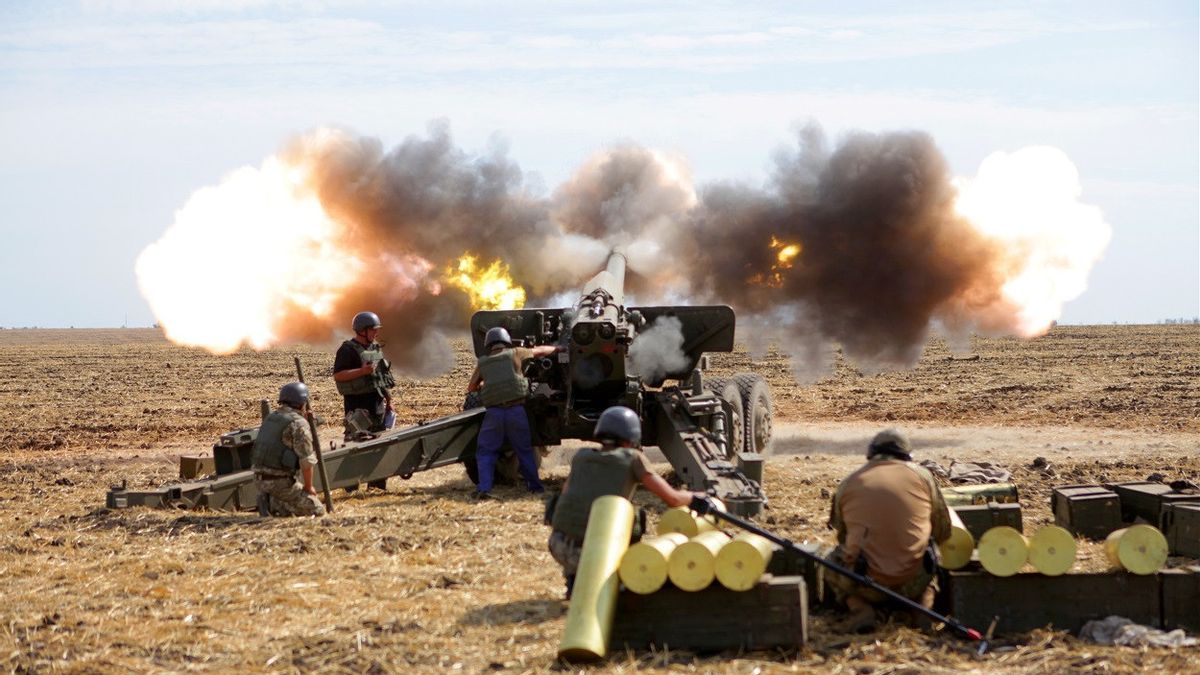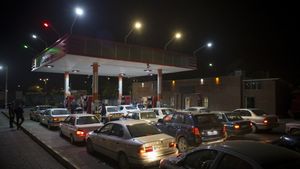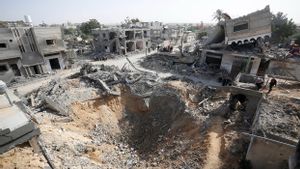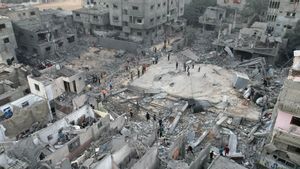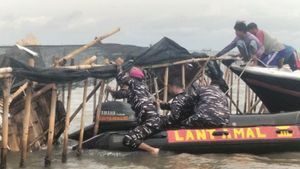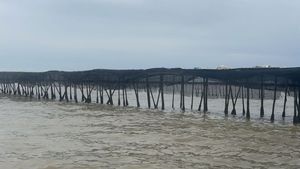JAKARTA - A senior Ukrainian military general admitted that his troops on the front lines were experiencing a shortage of artillery shells, having been forced to reduce several military operations due to a lack of foreign assistance.
Brigadier General Oleksandr Tarnavskyi spoke after Republican lawmakers held up a US$60 billion United States aid package and Hungary blocked 50 billion euros in European Union funds for Kyiv as it battles a Russian invasion.
"There are problems with ammunition, especially post-Soviet (bullets), namely (caliber) 122 mm, 152 mm. And currently this problem is happening on all front lines," he said in an interview with Reuters, as quoted on December 19.
Tarnavskyi said the shortage of artillery shells was a "very big problem" and reduced foreign military aid was having an impact on the battlefield.
"The amount we have now is not sufficient for our current needs. So, we are redistributing it. We are replanning the tasks we have set for ourselves and making them smaller, because we need to provide them," he said, without giving details.
The comments underscore Kyiv's reliance on Western military aid to fight Russian forces on a 1,000km front, nearly 22 months into Europe's biggest conflict since the Second World War.

Russian troops also face ammunition problems, Tarnavskyi said, without elaborating.
General Tarnavskyi further said that exhausted Ukrainian troops on the southeastern front were on the defensive in some areas but were trying to attack in others.
Ukraine's squad still hopes for a win but would benefit from reserves to rotate and rest them, he said.
"In some areas, we are moving (on defense), and in other areas we are continuing offensive actions – with maneuvers, fire and moving forward. And we are preparing our reserves for further large-scale actions," he explained.
It is known that General Tarnavskyi was the commander of the operational group "Tavria", leading the counteroffensive that forced Russian troops out of the southern city of Kherson and the western side of the Dnipro River in November 2022, the last major success on the Kyiv battlefield.
He also played an important role in the large-scale offensive in the southeastern region of Zaporizhzhia this year, although it made little progress against Russia's extensive trenches and minefields.
The Russians themselves launched an offensive in the east and tried to encircle the strategic eastern city of Avdiivka, whose defenses were overseen by Tarnavskyi.
"Their (Russian troops) intentions remain (the same). The only thing is that their actions change, tactics change, attacks are carried out continuously," he explained.
According to him, the situation in Avdiivka changed "every day and every night" with Russian troops regularly changing their tactics, having achieved "partial success in some areas at a depth of about 1.5 to 2 km".

"I believe we are firmly holding these lines at this time," he said.
"Today, the enemy pressured us with their numbers. They never cared and will not care about their personnel," he stressed.
Avdiivka is widely seen as crucial to Russia's goal of seizing full control of Ukraine's two eastern provinces, Donetsk and Lugansk, two of four Ukrainian regions that Russia says it has annexed but does not have full control over.
It said neither side had made significant territorial gains this year and most fighting had subsided.
General Tarnavskyi himself said that all brigades are looking for ways to give rest to personnel.
"Today we have certain difficulties with the personnel we have on the front line. Yes, today they are not fresh, they are not rested," he said.
SEE ALSO:
"Every commander must have reserves," he added.
General Tarnavskyi added that winter conditions, reduced visibility and lack of protection from trees devoid of foliage, were challenges for both sides.
"But we have many years of experience in conducting military operations in winter conditions. Logistics, and evacuation and movement of equipment and personnel are very complicated," he concluded.
The English, Chinese, Japanese, Arabic, and French versions are automatically generated by the AI. So there may still be inaccuracies in translating, please always see Indonesian as our main language. (system supported by DigitalSiber.id)
